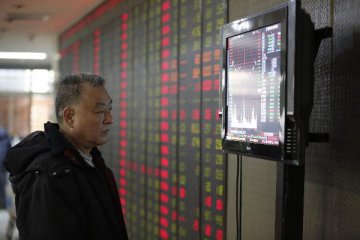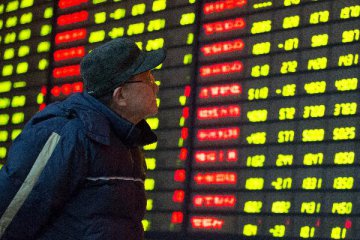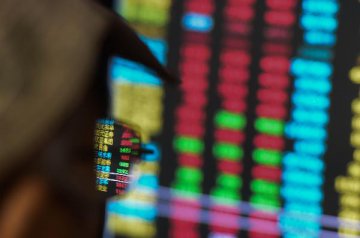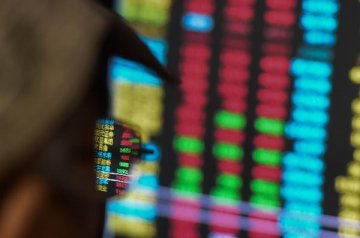
Chinese stocks extended their rally on Tuesday, with the major stock index hitting its highest level in more than 10 months, driven by expectations of higher inflation and an improving economy.
The benchmark Shanghai Composite Index climbed 0.94 percent to close at 3,248.35 points, following a 0.79 percent increase on Monday.
The smaller Shenzhen Component Index closed 0.79 percent higher at 10,985.6 points.
The ChiNext Index, China's NASDAQ-style board of growth enterprises, gained 1.16 percent to close at 2,177.65 points.
The latest stock rally was built on improved market sentiment and expanding transaction volume.
The margin trading balance outstanding on China's stock market, which measures the use of borrowed money in stock transactions and is viewed as an indicator of investor sentiment, reached a 10-month high of 954.4 billion yuan on Monday.
From the beginning of November to Monday, the daily transaction volume on the Shanghai and Shenzhen bourses was 603.7 billion yuan on average, up from 410 billion yuan in September and 479.6 billion yuan in October.
Analysts attributed the market turnaround to a stabilizing Chinese economy, stronger inflation outlook, property curbs and a slew of reform measures.
Several indicators pointed to signs of improvement in China's economy in October, with fixed-asset investment growing faster than market expectations and manufacturing posting its best performance in more than two years.
The country's key inflation gauge, the consumer price index, increased at its fastest pace in six months in October, while factory prices beat market expectations to accelerate to a 55-month high.
Thanks to the stabilizing economy and a low base in 2015, listed firms posted better results in the third quarter, Cinda Securities said in a research note.
Of nearly 3,000 listed companies in Shanghai and Shenzhen, 65 percent reported higher net profits in the first three quarters from a year earlier.
The combined net profits of all listed firms reached 2.1 trillion yuan in the period, up 2.93 percent year on year.
The rising stock prices have also factored in the impact of expected moves by U.S. President-elect Donald Trump to boost infrastructure spending, which will improve the outlook for the U.S. and global economy, according to Ping An Securities.
In addition, recent property curbs in a dozen Chinese cities may have encouraged investors to move their funds into the stock market, said Yang Delong, chief economist of First Seafront Fund.
Stock prices were also buoyed by other factors, including accelerated reforms of state-owned firms, progress in investing pension funds in the stock market, as well as the imminent launch of the Shenzhen-Hong Kong stock connect scheme, according to analysts.
Total turnover on the Shanghai and Shenzhen bourses reached 663.8 billion yuan (96.3 billion U.S. dollars) on Tuesday, an increase of around 70 billion yuan from Monday.
Energy stocks led the gains, fueled by a strong rebound in international oil prices amid rising expectations for inflation.
Shares of PetroChina, the country's largest oil and gas producer, went up 2.54 percent to 7.67 yuan.
Coal firms also posted strong growth, with China Shenhua, the nation's top coal producer, increasing 4 percent to 17.68 yuan.
Financial companies performed well, too. China Life, the country's largest insurer, jumped 5.37 percent to 26.09 yuan.























Latest comments